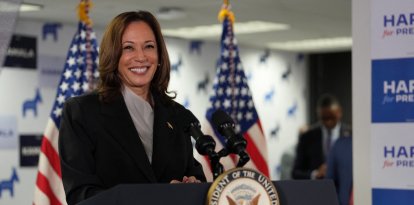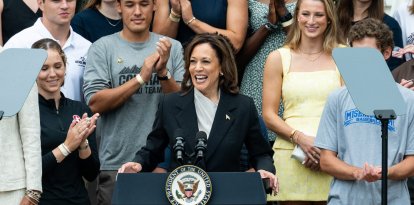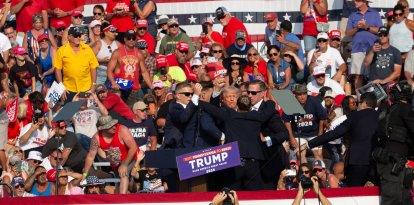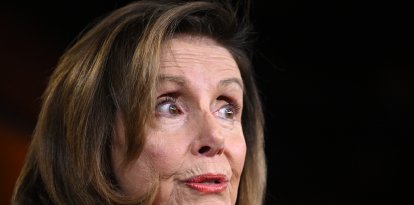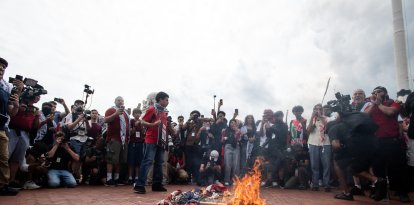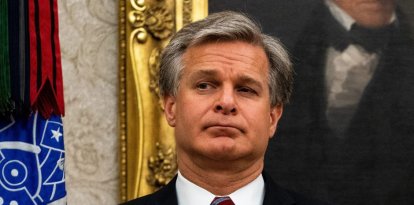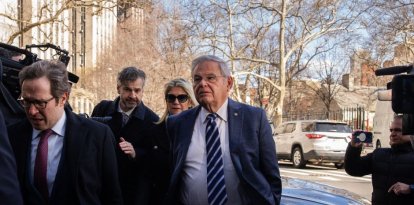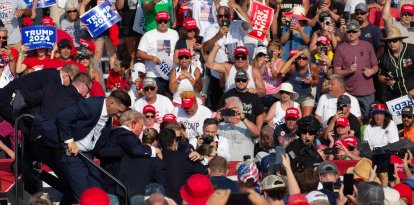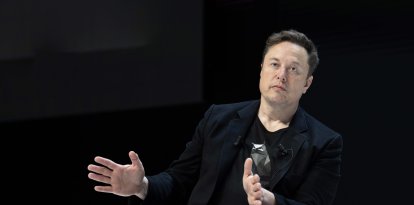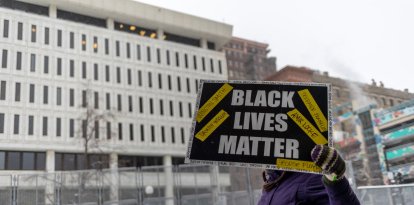Republican primaries: How the favorite candidates arrive at the Iowa caucuses
Trump remains the big favorite, but Haley, DeSantis and Ramaswamy loom behind him hoping to survive the first electoral battle.
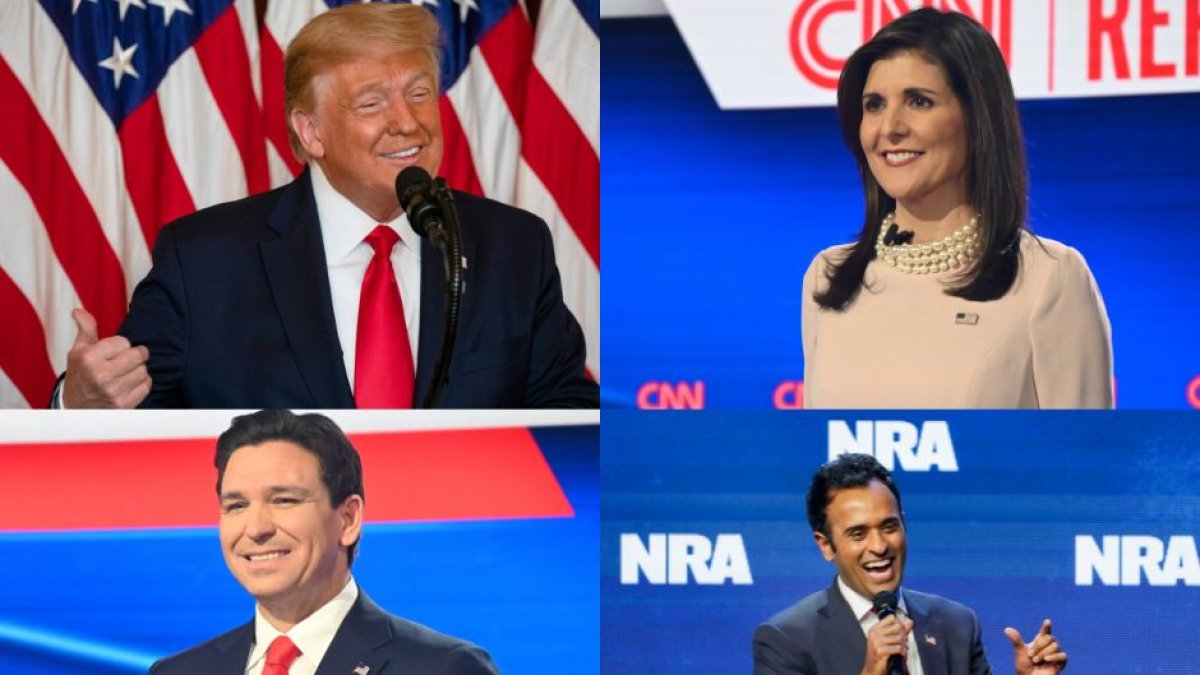
Montaje de Voz Media / Créditos: Cordon Press
Today the Republican Party primaries officially begin in Iowa, a key state in the race to define the GOP candidate for this year's general elections.
The “caucus” or “electoral meeting” is one of the main tests for the presidential candidates. Four contendors mainly stand out: Former President Donald Trump, former ambassador to the U.N. Nikki Haley, Florida Governor Ron DeSantis and the young businessman Vivek Ramaswamy.
The Iowa caucus is an electoral meeting where citizens gather at the voting center of their corresponding district to vote on paper for their preferred candidate.
Below are the keys to the race and how the favorite candidates made it to the caucus.
Donald Trump is the favorite to win the Iowa Caucus
Former President Trump, according to most polls, is the favorite in most states. In Iowa, particularly, he is projected to get 48% of the vote, according to the final NBC News poll.
He is followed by Haley (20%), DeSantis (16%) and Ramaswamy (8%).
Ideologically speaking, Trump needs no introduction, his America First platform is well-known throughout the country after his 2016-2020 presidential term. What does surprise many is that he is not the hardline candidate in this race when compared to DeSantis or Ramaswamy.
The former president showed up to caucus with the polls in his favor. He has been holding rallies in the states where the first primaries will take place all while working his magic to fit these events in among the different judicial processes he is facing.
However, despite the court battles, his popularity remains strong not only in Republican Party primary polls but also in polls that compare him to President Joe Biden.
Iowa may be the first big push to confirm his candidacy in the general elections.
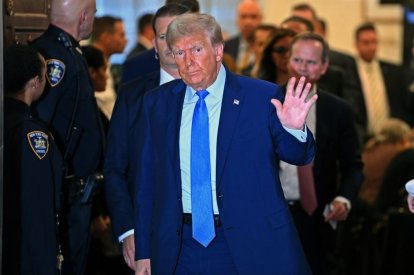
New blow to democracy: Trump disqualified from Maine Republican primary elections
Is Nikki Haley his main challenger?
In recent months, the former ambassador to the U.N. has moved her way up the polls and is the second favorite candidate, behind Trump.
Haley, who based her campaign on centrism and moderation, is slightly above DeSantis in the Iowa polls and is less than ten points behind Trump in New Hampshire, another key state in these races.
The former ambassador managed to earn great financial support. She is backed by the Koch brothers. She also did a better job of capturing the anti-Trump vote better, clearly surpassing Chris Christie, who recently pulled out of the race.
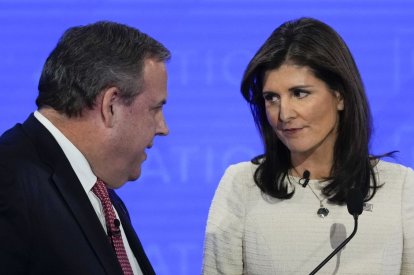
Bad news for Trump?: Chris Christie will announce his withdrawal from the presidential race
In fact, in electoral terms, NBC News revealed that almost half of Haley's voters are willing to vote for Biden if Trump were to become the GOP candidate. Another significant group would vote for an independent.
For Haley, the Iowa election could make or break her race. A bad result (finishing below second place or very far from Trump) could doom her real aspirations to compete against the former president.
DeSantis, the hardline candidate
The governor of Florida is, perhaps, the hardline candidate in this race running to the right of Trump on several issues related to immigration, fiscal conservatism and the so-called “cultural battle” against the woke ideology.
However, according to polls, DeSantis has struggled to keep his candidacy afloat because he has not been able to win over the Republican base over Trump and the anti-Trump vote is opting for a more moderate option (Haley).
But Iowa could give him a glimmer of hope to be able to compete in New Hampshire.
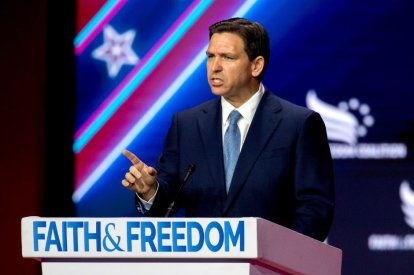
Ron DeSantis, Republican Party primary candidate and governor of Florida, during a rally.
For DeSantis, the real task today, more than winning the Iowa delegates, is to snatch second place from Haley at any cost and come out stronger in the first electoral battle of this long process of primaries.
In historical terms, DeSantis is hoping to do what Senator Marco Rubio did in 2016. He finished third in Iowa, but very few points behind Senator Ted Cruz, who won the electoral delegates, and Trump, who finished second in that process.
In short, the governor today is hoping the result will keep him in the race.
Ramaswamy is hoping for a surprise
Businessman millennial Vivek Ramaswamy is the “fresh face” of the GOP in this race, the candidate who “gets into the mud” the most with the most controversial issues regarding the culture, foreign policy and criticism of the establishment. At the same time, he is the least likely candidate to be successful today.
The polls have made it clear that Ramaswamy is far behind Trump, Haley and DeSantis in most states. Even so, his presence captivates part of the base and his appearance on the ballots, contradictorily, affects Trump, whom Ramaswamy has praised throughout the campaign.
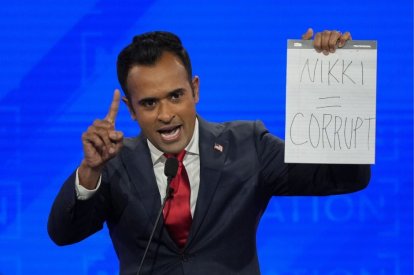
Trump sacrifices Ramaswamy two days before the start of the primaries:
Interestingly enough, Ramaswamy was the target of attack by the former president, who asked voters on his Truth Social network not to “waste” their vote on the young businessman.
Ultimately, Ramaswamy's presence is important today because, in part, it somewhat divides Trump's base votes.
Facts about the Iowa caucus
Why they are important: Despite being a small state that is made up of only 40 delegates of the 2,469 delegates who will elect the Republican presidential candidate, Iowa is the first battle of the primaries. This is where many candidates may or may not permanently drop out of the race. That is, it is the election where the candidates are separated from the defeated.
What's at stake: Although Trump is still the favorite, we can't lose sight of what will happen with Haley, DeSantis and Ramaswamy. Let's see if the candidates survive the first battle and can brave the second big fight: New Hampshire, whose primary will take place in a few days.
Is Iowa different? No, it is not. In 2016, Senator Ted Cruz narrowly won this state's delegates. His close pursuers were Trump and Rubio, who were just a few percentage points behind Cruz. We all know the subsequent story: Trump swept the primaries and his first big victory was in New Hampshire.
Beyond the 2016 result, there have only been three candidates in history who have won in Iowa and then managed to make it to the White House: Jimmy Carter in 1976; George W. Bush in 2000; and Barack Obama in 2008.
The elections don't end in Iowa, although it could be a great boost for the candidates.













